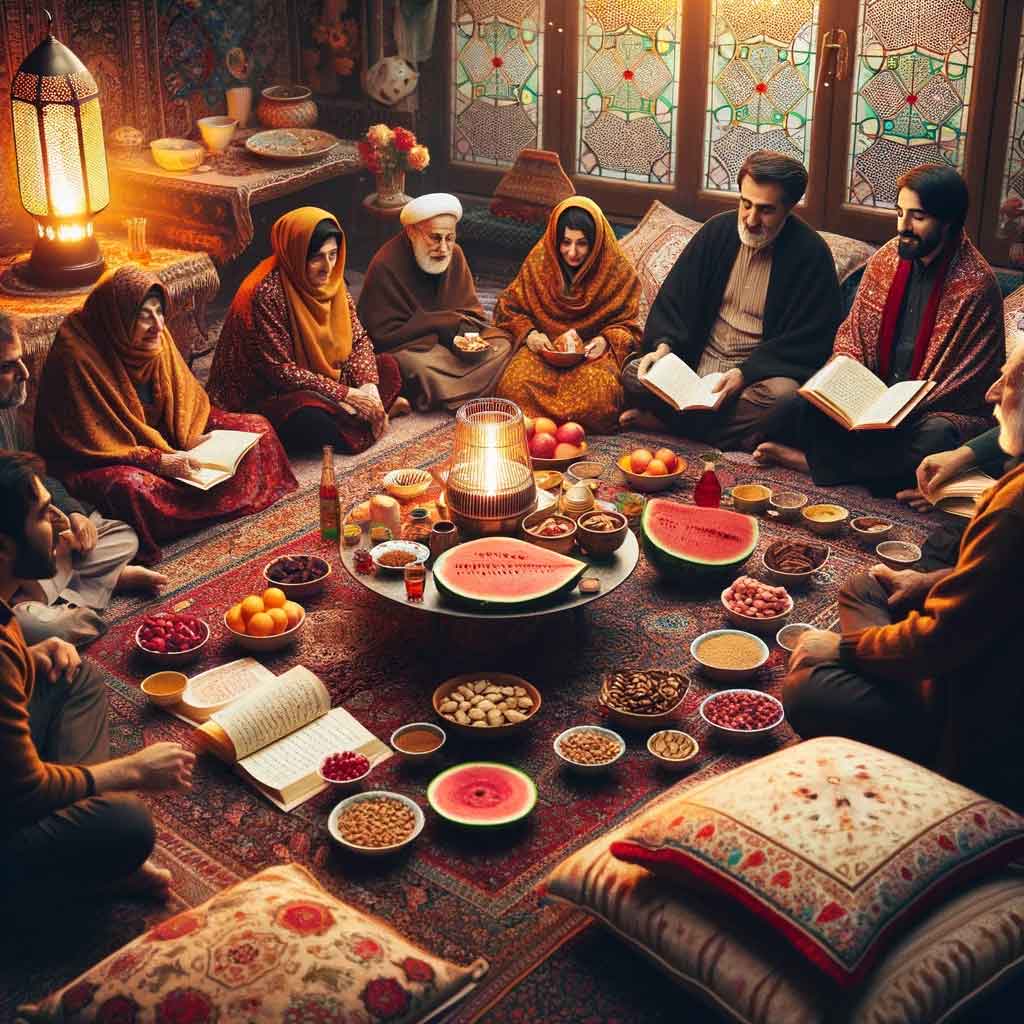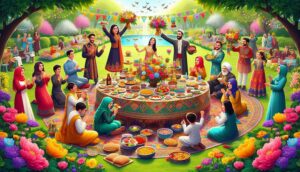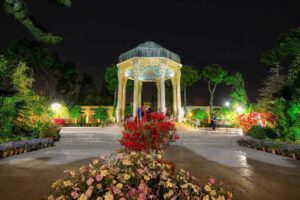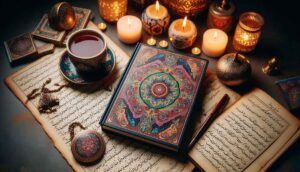Every year, on the eve of the winter solstice, Iranians and many others in the region gather to celebrate Shab-e Yalda, a tradition that dates back thousands of years. This ancient festival marks the longest night of the year and the turning point when the days begin to grow longer, bringing the promise of warmer days ahead. One of the key components of Shab-e Yalda is the recitation of the poetry of Hafez, a renowned Persian poet, during a practice known as Hafez Khwani.
Table of Contents
ToggleShab-e Yalda: A Celebration of Light
Shab-e Yalda, also known as Yalda Night, is a celebration deeply rooted in Persian culture and history. It is observed on the eve of the winter solstice, typically falling on the night of December 20th or 21st. The festival has its origins in the ancient Zoroastrian tradition, which predates Islam and has been passed down through generations.
The essence of Shab-e Yalda lies in the concept of light overcoming darkness. As the longest night of the year, it represents the triumph of light and warmth over the cold and darkness of winter. People gather with their loved ones, family, and friends to stay awake throughout the night, engaging in various activities to keep the darkness at bay.
Hafez Khwani: The Poetry of Hafez
One of the most cherished and poetic aspects of Shab-e Yalda is Hafez Khwani, the recitation of the works of Hafez, a 14th-century Persian poet. Hafez, whose full name was Khwaja Shams-ud-Dīn Muḥammad Hāfez-e Shīrāzī, is considered one of the greatest poets in Persian literature. His verses explore themes of love, mysticism, and the beauty of life.
During Shab-e Yalda, families and friends gather around the Haft-Seen table, a traditional spread featuring seven symbolic items whose names start with the Persian letter “س” (sin), which represents the “s” sound. Alongside these symbolic items, a book of Hafez’s poetry is placed on the table. Each person takes turns reciting a verse from Hafez, and the poem they randomly select is believed to provide insights and guidance for the year ahead.
The Tradition of Hafez Khwani
Hafez Khwani is not merely a recitation of poetry; it is a deeply spiritual and mystical experience. The act of opening Hafez’s divan (collection of poetry) to a random page and interpreting the verse that appears is known as “Fal-e Hafez” or “Fāl-e Ḥāfeẓ.” This practice is akin to a form of fortune-telling, where the chosen verse is believed to offer guidance, wisdom, and insight into one’s life, particularly for the upcoming year.
Many people take Hafez Khwani seriously, seeking solace, advice, and inspiration from Hafez’s verses. It is a tradition that brings a sense of unity, spirituality, and reflection to the celebration of Shab-e Yalda.
Conclusion
Shab-e Yalda and Hafez Khwani are beautiful and meaningful traditions that celebrate the turning point of winter and the arrival of longer days. These ancient practices bring people together to appreciate the power of light over darkness and to seek inspiration and guidance from the timeless poetry of Hafez. As Iranians and others in the region gather to celebrate this special night, they not only mark the passage of time but also honor the rich cultural and literary heritage of their ancestors.






